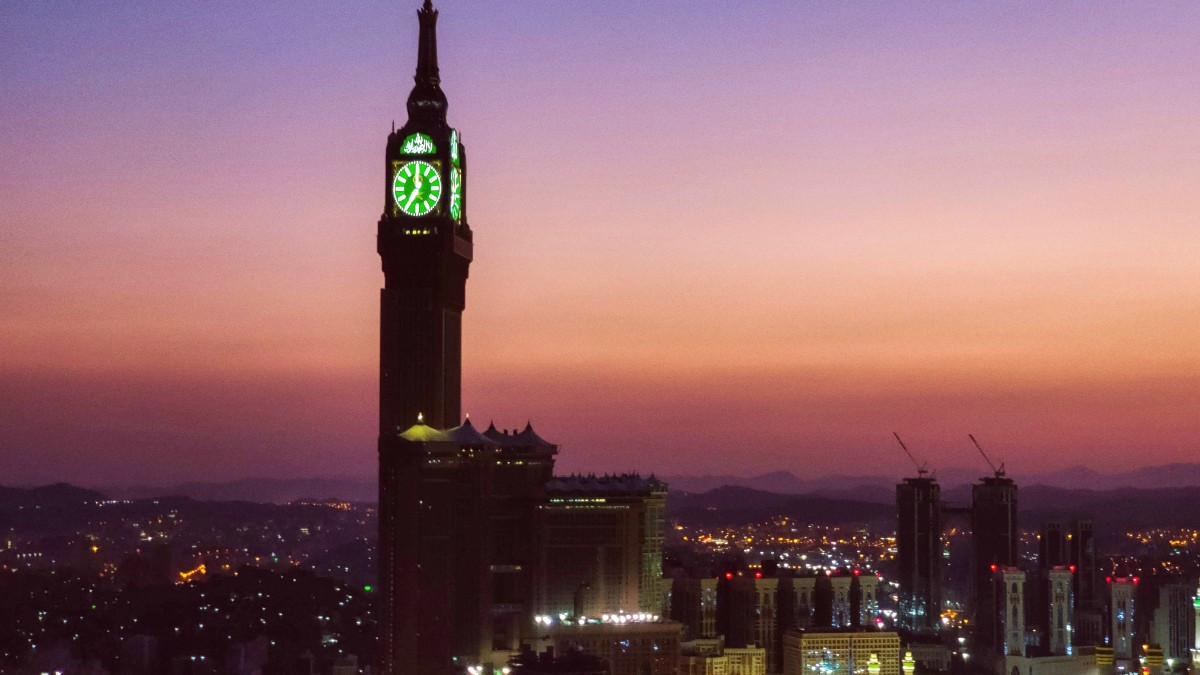
Saudi Arabia
Addressing the environmental challenges from a vast number of pilgrims is a focus for local authorities.
Supporting local businesses contributes directly to the economic well-being of the community.
The vast number of pilgrims presents environmental management challenges in Mecca. Conservation efforts focus on managing the impact of millions of visitors.
Significant waste generation occurs during peak pilgrimage seasons. The Saudi government implements improved waste collection and recycling programs.
While not a dominant trend, some newer hotels incorporate energy-efficient designs and water-saving measures.
Protected areas and conservation initiatives mostly exist outside the urban centers, focusing on broader national environmental protection.
Opt for tour operators that emphasize responsible practices and prioritize ethical considerations in their tours.
Saudi Arabia faces severe water scarcity. Pilgrims are encouraged to use water responsibly, minimizing showers and avoiding unnecessary consumption.
Efforts exist to preserve remaining historical sites and Islamic heritage related to the Prophet's era, like the Museum of the Two Holy Mosques.
Being a responsible traveler contributes positively to Mecca's environment and community.
Cultural sensitivity holds supreme importance in Mecca. Pilgrimage drives Mecca's economy, offering opportunities for positive economic impact.
Always observe modesty in dress and behavior. Respect prayer times; avoid interrupting or walking in front of people praying.
Remove shoes before entering mosques. Dress modestly (headscarf for women, modest dress for men). Maintain silence and reverence.
Mecca's economy relies heavily on pilgrimage. Pilgrims indirectly support a vast network of local businesses.
Be wary of unlicensed tour operators or individuals offering unofficial services, specifically for Hajj or Umrah.
While rapid development has transformed much of Mecca, efforts occur to preserve remaining historical sites and Islamic heritage related to the Prophet's era.
A initiative demonstrating artifacts and the history of the holy sites.
Preservation of sites outside the main city center linked to early Islamic history.
Balancing modern infrastructure with the historical and spiritual essence of Mecca.
Guidelines for respectful interactions and appropriate charitable giving during your visit to Mecca.
Always seek permission before photographing individuals. Avoid photographing women without their explicit consent.
Many opportunities exist for charitable giving (Sadaqah, Zakat) to local charities and needy individuals.
Directly contributing to the local economy strengthens the community.
Mecca's economy relies heavily on pilgrimage. While direct community-based tourism is not a formal sector, pilgrims indirectly support a vast network.
Fair trade and ethical shopping options are not widely publicized, but conscious choices make a difference.
Be cautious of individuals offering unofficial services, especially for Hajj or Umrah.
Always book through accredited and licensed channels to avoid scams or unsafe conditions.